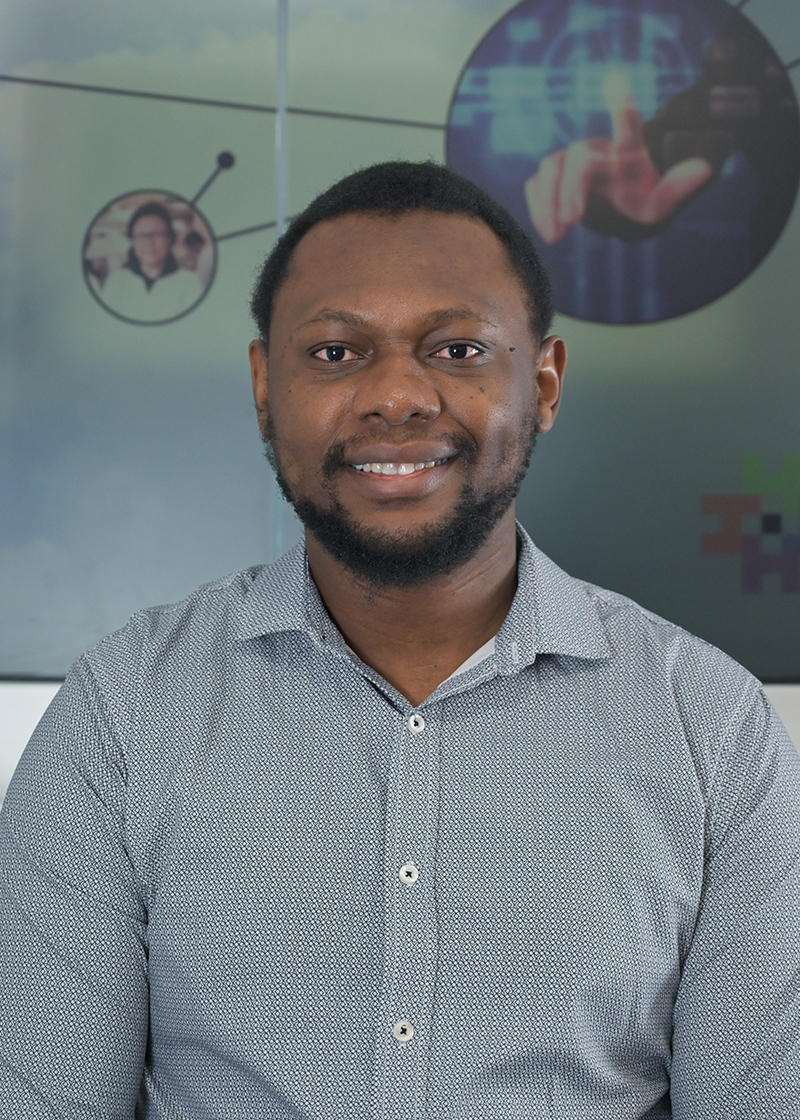From local hospitals to the United Nations, organizations have warned that the world is in a mental health crisis — one that young entrepreneurs are fighting with tech-based startups.
The Hub is an entrepreneurial incubator at U of T Scarborough, and its director, Donovan Dill, says he can’t recall ever seeing so many startups related to mental health.
“There’s been an awakening, I think, for concerns about everybody’s mental health, about how we can help others,” Dill says.
Neurokin

One of these companies is Neurokin, a one-stop information shop for marginalized neurodivergent people who identify as women, 2SLGBTQ+ and/or people of colour. The company was co-founded by two cousins and best friends living with autism and ADHD; the duo are trying to make the platform they needed as they struggled to get diagnosed and understand their brains.
The website is a distillation of Maria Khandaker’s more than six years of research into neurodivergence. A mental health studies student at U of T Scarborough, Khandaker scoured the internet to make sense of her symptoms — she had a strong sense of justice, a tendency to take things literally and difficulty compartmentalizing, among other traits that led her to believe she wasn’t just experiencing the anxiety and depression she was diagnosed with.
“At every step, I had to prove that I was going through something I knew I was going through,” she says. “I wanted to put something together that people can relate more to than, say, ADHD research. And I felt people would benefit from having that information all in one place.”
The site’s pages bridge a playful writing style and Gen Z slang with evidence-based advice, terminology, general facts and other information that helps users conduct self-assessments and understand the words that may help them navigate their mental health journey. A newsletter sends snippets of the content to people’s inboxes.
EVOLVERE

Tanisha Sylvester’s startup EVOLVERE has a similar purpose. During her undergrad, Sylvester found many of her classmates didn’t realize they were experiencing the same mental health struggles as their peers — no one seemed to be talking about what they were going through. That’s why EVOLVERE is a website where students share their experiences and access mental health resources.
“I think what makes us unique is the creative ways that we approach achieving our goal of improving student mental health,” says Sylvester, who completed her master’s at U of T.
The site has three core features, including a forum for posting shorter reflections and links to resources, such as encouragement and strategies for exam season and Student Life Tips, a series of advice students wish they’d heard during their studies. It also has a blog feed where users post longer articles; a recent entry that detailed a user’s experience living with an autoimmune condition inspired another user to write about their life with selective mutism.
“People are telling us they find it cathartic to share their experiences and what they’ve learned from them,” Sylvester says. “That sense of community and speaking up helps people feel understood and inspired to advocate for themselves.”
Its third feature is a section for challenges — a way to prompt students to actively practice the mental health care tips shared on the platform and incorporate new healthy habits into their days.
mhapy

Meanwhile, Chijindu Ukagwu is a mental health nurse with a startup developing a proactive chatbot. Ukagwu spends much of his shifts asking patients the same questions as a means of tracking their symptoms. Those discussions are repetitive but not robotic, with more social benefits than questionnaires.
“Questionnaires are not interactive. If you have to answer the same question every day, you're going to get tired,” says Ukagwu, a master’s student at U of T. “A chatbot can engage a patient the way a mental health nurse would.”
Ukagwu founded mhapy, a company with a chatbot named Ruby that tracks users’ mental health symptoms the way nurses do — by subtly completing standardized mental health screenings through conversations. The robot isn’t meant to replace human connection, but to facilitate it. Ruby determines a user’s baseline mood, then notifies their support network, including friends, family or health-care providers, if their symptoms worsen.
“By looking at all the analytics, a health-care provider can track how, say, the intervention they provided at their last session improved their mental health or not,” he says.
The company is combining different open-source technologies to streamline getting their software on different platforms, meaning any psychotherapist, private practice or other health-care provider will be able to get their own version of the chatbot and host it on their existing app or website.
Ukagwu and Khandaker won awards at a recent hack-a-thon hosted by The Hub and Ontario Shores Centre for Mental Health Sciences, which challenged teams to create a more user-friendly way to navigate mental health resources. Coincidentally, EVOLVERE won sixth place in U of T’s Adams Sustainability Innovation Prize on the same day.
“The hack-a-thon provided a unique opportunity for Ontario Shores to open up the doors for innovators to co-design and co-develop solutions with our clinicians, staff and patients, for the specific needs identified by our front-line inpatient staff,” says Jeanie Zabukovec, manager of research and academics at Ontario Shores.
